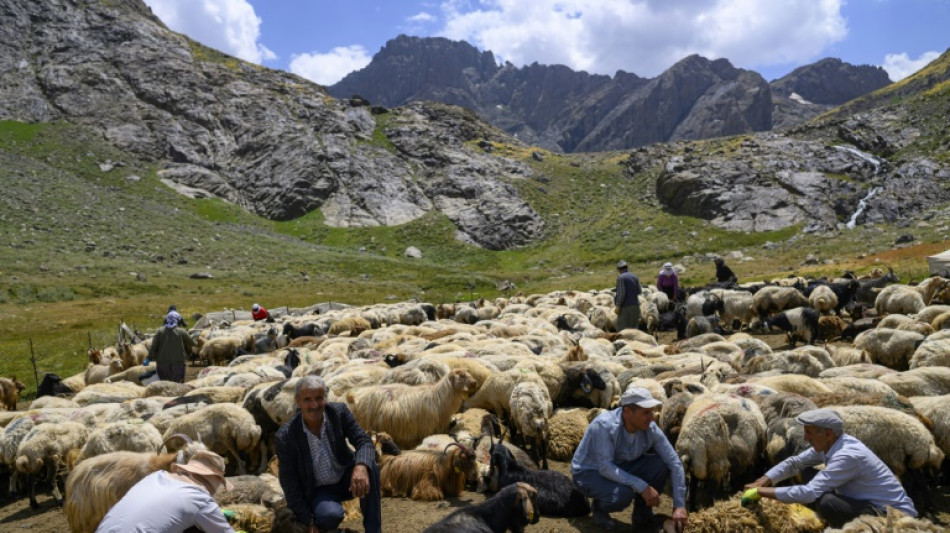
-
 Julia Roberts, Jude Law to feature at star-packed Venice Film Festival
Julia Roberts, Jude Law to feature at star-packed Venice Film Festival
-
Stocks slip as investors eye tariff impact among corporate earnings
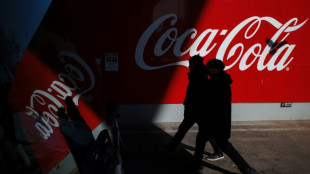
-
 General Motors profits fall on tariffs
General Motors profits fall on tariffs
-
Extreme weather misinformation 'putting lives at risk,' study warns

-
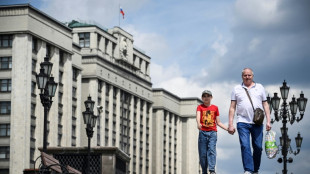 Russia seeks to fine web users searching for content deemed 'extremist'
Russia seeks to fine web users searching for content deemed 'extremist'
-
Paret-Peintre delivers Tour de France home win in Mont Ventoux thriller

-
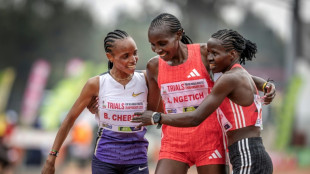 Janeth Chepngetich books world championships slot with upset win
Janeth Chepngetich books world championships slot with upset win
-
French Open sensation Boisson withdraws injured from Montreal

-
 France's culture minister to be tried on corruption charges
France's culture minister to be tried on corruption charges
-
US Treasury chief says no reason for Fed chair to step down
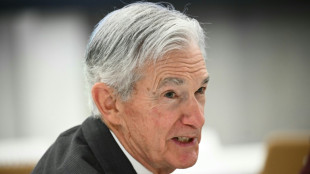
-
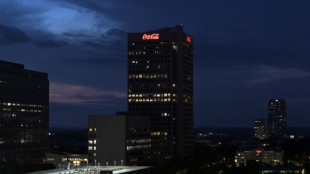 Coca-Cola plans US cane sugar alternative after Trump push
Coca-Cola plans US cane sugar alternative after Trump push
-
US to leave UN cultural body, citing 'national interest'

-
 India's Gill accuses England of ignoring 'spirit of the game' by time-wasting
India's Gill accuses England of ignoring 'spirit of the game' by time-wasting
-
Heat forces new Acropolis closure amid fiery temperatures
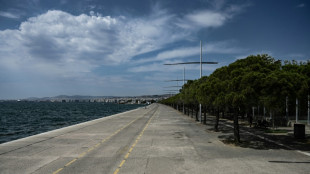
-
 US Treasury chief eyes China tariff deadline extension in talks next week
US Treasury chief eyes China tariff deadline extension in talks next week
-
Mbeumo thrilled to follow in Ronaldo's footsteps at 'biggest club in the world' Man Utd

-
 Alcaraz withdraws from Toronto event for Wimbledon recovery
Alcaraz withdraws from Toronto event for Wimbledon recovery
-
Markets mixed as investors eye earnings and Trump tariffs
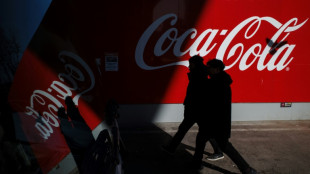
-
 India's Gill accuses England of ignoring 'spirit of the game' with time-wasting
India's Gill accuses England of ignoring 'spirit of the game' with time-wasting
-
Van der Poel drops out of Tour de France with pneumonia

-
 Stokes ready to push through pain barrier against India
Stokes ready to push through pain barrier against India
-
Newcastle cult hero 'Nobby' Solano appointed Pakistan coach

-
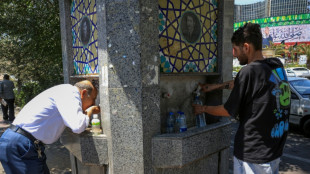 Heatwave hits water, electricity supplies across much of Iran
Heatwave hits water, electricity supplies across much of Iran
-
Pakistan landslide after heavy rain kills 5, with 15 missing
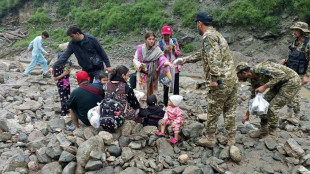
-
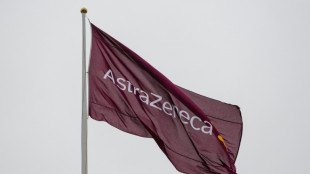 AstraZeneca to invest $50 bn in the US as tariff threat looms
AstraZeneca to invest $50 bn in the US as tariff threat looms
-
Lions survive ferocious test to edge First Nations and Pasifika XV

-
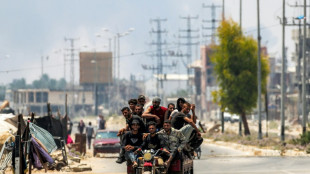 Gaza hospital says 21 children dead from malnutrition and starvation
Gaza hospital says 21 children dead from malnutrition and starvation
-
France's top diplomat calls for foreign press access to Gaza

-
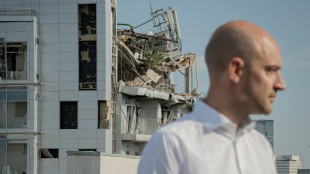 Top French diplomat visits Ukraine frontline region
Top French diplomat visits Ukraine frontline region
-
Bangladesh seethes as toll from jet crash at school hits 31
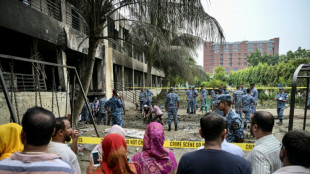
-
 Moscow not expecting 'breakthroughs' from Ukraine talks
Moscow not expecting 'breakthroughs' from Ukraine talks
-
Former England star Gascoigne released from hospital

-
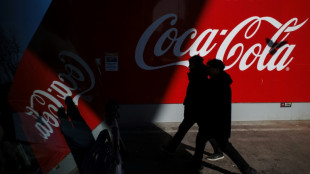 Stocks diverge with eyes on earnings, trade talks
Stocks diverge with eyes on earnings, trade talks
-
Philippines flooding displaces thousands as new storm threatens
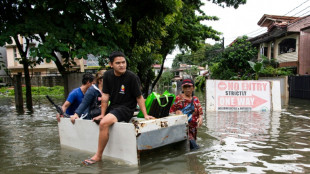
-
 Price hikes nibble at demand for Lindt chocolate
Price hikes nibble at demand for Lindt chocolate
-
Amnesty urges probe into Israeli strike on Tehran prison
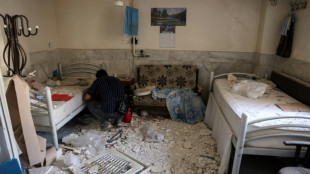
-
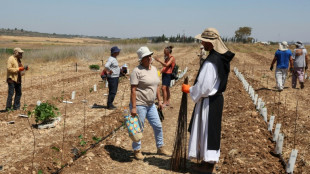 New vines bring hope to Israeli monastery scorched by wildfire
New vines bring hope to Israeli monastery scorched by wildfire
-
China's top football body to form esports team after World Cup flop

-
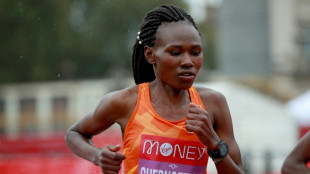 Kenya athletics trials under shadow of Chepngetich suspension
Kenya athletics trials under shadow of Chepngetich suspension
-
Stocks mixed with trade and earnings in focus
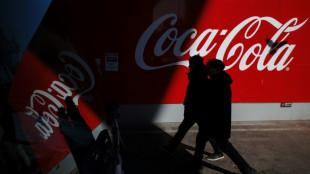
-
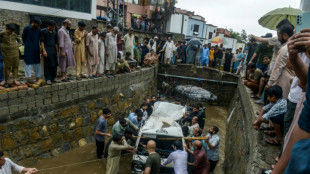 Pakistan landslide after heavy rain kills 3, with 15 missing
Pakistan landslide after heavy rain kills 3, with 15 missing
-
UK gives green light to £38 bn Sizewell C nuclear plant
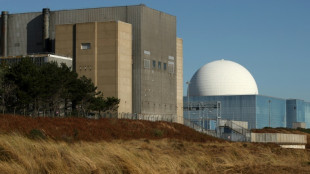
-
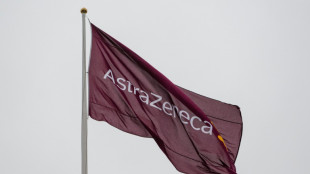 AstraZeneca says to invest $50 bn in the US
AstraZeneca says to invest $50 bn in the US
-
New-look Australia swim team use worlds to build towards LA 2028

-
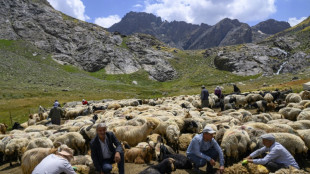 Kurdish farmers return to mountains in peace as PKK tensions calm
Kurdish farmers return to mountains in peace as PKK tensions calm
-
Bangladesh mourns as toll from jet crash at school hits 27
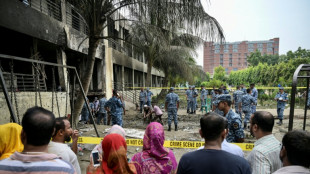
-
 'Gloves are off': cancelled Late Show host comes out swinging for Trump
'Gloves are off': cancelled Late Show host comes out swinging for Trump
-
India face Bumrah dilemma as England search for top order stability

-
 MAGA-style 'anti-globalist' politics arrives in Japan
MAGA-style 'anti-globalist' politics arrives in Japan
-
Anxiety and pride among Cambodia's future conscripts
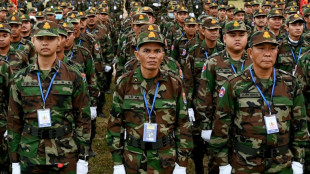

Kurdish farmers return to mountains in peace as PKK tensions calm
Deep in the mountains of Turkey's southeastern Hakkari province, bordering Iran and Iraq, Kurdish livestock owners and farmers have gradually returned with their animals after decades of armed conflict between Kurdish militants and the Turkish army.
"We've been coming here for a long time. Thirty years ago we used to come and go, but then we couldn't come. Now we just started to come again and to bring our animals as we want," said 57-year-old Selahattin Irinc, speaking Kurdish, while gently pressing his hand on a sheep's neck to keep it from moving during shearing.
On July 11 a symbolic weapons destruction ceremony in Iraqi Kurdistan marked a major step in the transition of the Kurdistan Workers' Party (PKK) from armed insurgency to democratic politics -- part of a broader effort to end one of the region's longest-running conflicts.
The PKK, listed as a terror group by Turkey and much of the international community, was formed in 1978 by Ankara University students, with the ultimate goal of achieving the Kurds' liberation. It took up arms in 1984.
The conflict has caused 50,000 deaths among civilians and 2,000 among soldiers, according to Turkey's President Recep Tayyip Erdogan.
Alongside with several other men and women, Irinc practices animal husbandry in the grassy highlands at the foot of the Cilo Mountains and its Resko peak, which stands as the second-highest in the country with an altitude of 4,137 meters (13,572 feet).
A place of scenic beauty, with waterfalls, glacial lakes and trekking routes, Cilo has gradually opened its roads over the past few years to shepherds and tourists alike as the armed conflict with PKK died down on the backdrop of peace negotiations.
But the picturesque mountains had long been the scene of heavy fighting between the Turkish army and PKK fighters who took advantage of the rough terrain to hide and strike. It left the Kurdish farmers often at odds with the army.
"In the past we always had problems with the Turkish soldiers. They accused us of helping PKK fighters by feeding them things like milk and meat from our herd," another Kurdish livestock owner, who asked not to be named, told AFP, rejecting such claims.
"Now it's calmer," he added.
- 'Last generation' -
Although the peace process brought more openness and ease to the region, tensions did not vanish overnight.
Checkpoints remain present around the city of Hakkari, and also to the main access point to the trekking path leading to Cilo glacier, a major tourist attraction.
"Life is quite good and it's very beautiful here. Tourists come and stay in the mountains for one or two days with their tents, food, water and so on," said farmer Mahir Irinc.
But the mountains are a hard, demanding environment for those making a living in their imposing shadow, and the 37-year-old thinks his generation might be the last to do animal husbandry far away from the city.
"I don't think a new generation will come after us. We will be happy if it does, but the young people nowadays don't want to raise animals, they just do whatever job is easier," he lamented.
An open truck carrying more than a dozen Kurdish women made its way to another farm in the heart of the mountains, where sheep waited to be fed and milked.
The livestock graze at the foot of the mountains for three to four months, while the weather is warm, before being brought back to the village.
"We all work here. Mothers, sisters, our whole family. Normally I'm preparing for university, but today I was forced to come because my mother is sick," explained 22-year-old Hicran Denis.
"I told my mother: don't do this anymore, because it's so tiring. But when you live in a village, livestock is the only work. There's nothing else," she said.
M.Fischer--AMWN
